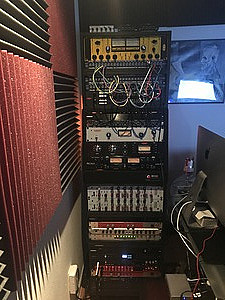Non-fiction Audiobook
Description
Vocal Characteristics
Language
EnglishAccents
North American (General)Transcript
Note: Transcripts are generated using speech recognition software and may contain errors.
forward making Music is a tremendously rewarding activity, one that engages more of the human brain than just about anything else. We do. Music and all of the arts are deeply baked into human culture as they embody fundamental aspects of human communication and expression. To teach Children about the arts is to teach them about the cultures and societies in which they live while at the same time, helping them develop sophisticated skills and auditory and visual discrimination, fine motor skills and a sense of personal accomplishment through active participation and meaningful creative endeavors. And if one needs a more practical rationale for music study, there's no better activity through which Children can observe a tangible relationship between their own efforts and the results their efforts produce in terms of increased skill, capacity and expressive potential, then learning to sing or play an instrument to participate successfully in active music making is one of the great joys of the human experience throughout history, Children beginning in infancy have watched and listened to older and more experienced music makers and they have aspired and tried and practiced and tried some more all the while expending effort and precious attention to make music themselves. Some of these aspirations and efforts resulted in successful outcomes. Others not so much the path to developing music skills under any circumstance is rather messy and nonlinear. What caring, skillful parents and teachers do is create pathways for learning that definitely weave together strategic experiences that generate appropriate challenges, set up moments of meaningful accomplishment and lead to increasing levels of independence. Consider a young child sitting at the piano as she does on most weekdays practicing exercises and pieces for her lesson. She struggles mightily to perfect a passage from a Mozart sonata with an awkward fingering, playing the figure slowly at first, then gradually faster until she performs it correctly in several consecutive repetitions. She's more attentive and her efforts are more concentrated than in just about any other intellectual or physical activity in which she participates. When she finally is able to negotiate the passage, she plays through the entire movement with a musical character that reflects her feelings of pleasure. Having recognized that her efforts have led to a tangible accomplishment. What explains this child's focus, concentration, extended effort, expression of ineffable emotion and sense of personal satisfaction and accomplishment? Perhaps it is her love of music in general, her love of Mozart in particular, her desire to please her teacher or her parents, or her desire to perform well on an upcoming recital. More likely, it's some combination of all of these. Such potentially powerful motivators don't arise in a vacuum but are a result of the concerted and thoughtful efforts of attentive caring adults who fill the child's environment with the sounds of music, facilitate individual study with excellent teachers provide meaningful and appropriate performance experiences and tangibly convey their own love of music. We know that music practice by the most skilled performers comprises a suite of essential features, thoughtful musical intention, deliberate approaches to problem solving performing during practice with expressive inflection. We also know that most beginners don't practice like that, not because they can't, but because they have not been adequately prepared to do so, learners must be able to distinguish one repetition from another, and as they gain in physical skill, there must be commensurate gains an auditory and physical discrimination. Practicing is not fruitful if students can't hear or feel the difference between one repetition and the next if they can't. It's not surprising that practicing is viewed as general ian motivating because literally it is all the same to them. So how do some Children develop into expert learners and persist in music study over time, while others face seemingly insurmountable obstacles, mind numbing boredom and a passionate desire to escape the unrelenting drudgery of practice. There are certainly some genetic predispositions at play. Some Children are more patient than others, others more anxious, others more driven, but none of these predispositions are determinative. All Children have the capacity to learn and enjoy the ins and outs of acquiring skill and understanding. Though they're learning tempos may vary, they all can arrive at the wonderful destinations given the right guidance and support. Parents and teachers provide the environments in which Children's interests are nurtured and their aspirations come to fruition, instilling effective habits of thinking and doing effective habits of learning. Children don't come into the world like new cars, direct from the factory of a single manufacturer, although they tend to work in fundamentally similar ways. They are far from identical creating environments conducive to their growth environments that are likely to inspire interest in the arts and to develop the habits of thinking and behavior required to reach the goals they set for themselves is one of the many daunting challenges that confront every parent. There are no simple recipes, of course, but we can learn from the experiences of successful people who have not only invested in the well being of Children, their own and others, but who have also thought a great deal about how all of this happens and are able to express in clear language, what it means and what it takes to be a loving guide to a loved child. Guandique steadman, whose work as an artist, teacher and thinker I have long admired, has created something wonderful and meaningful and loving practice, developing discipline. There's insight and wisdom here that can only come from a perceptive, focused mind with a tenacious devotion to the flourishing of Children and the arts. And in life, robert Duke PhD.
